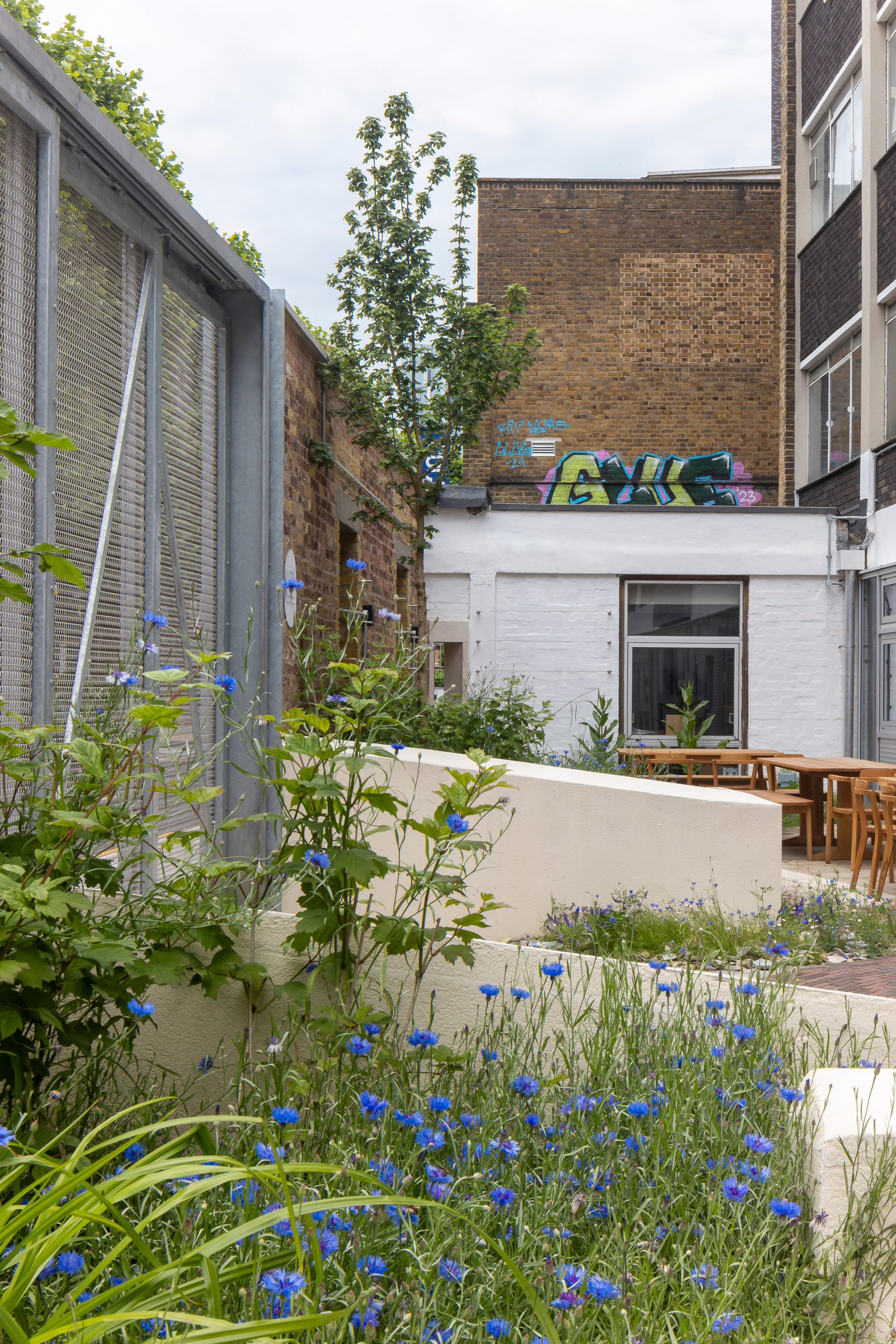

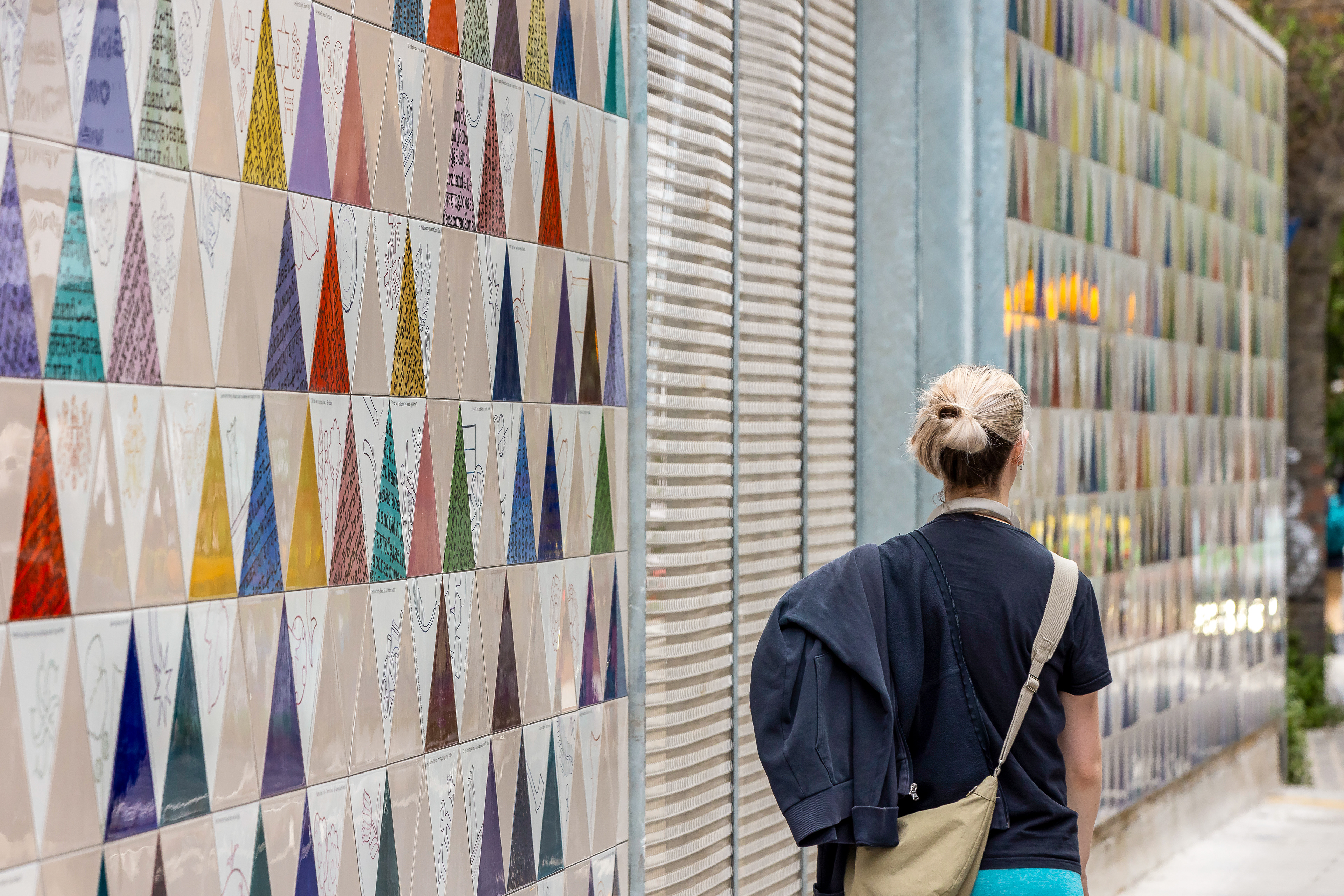
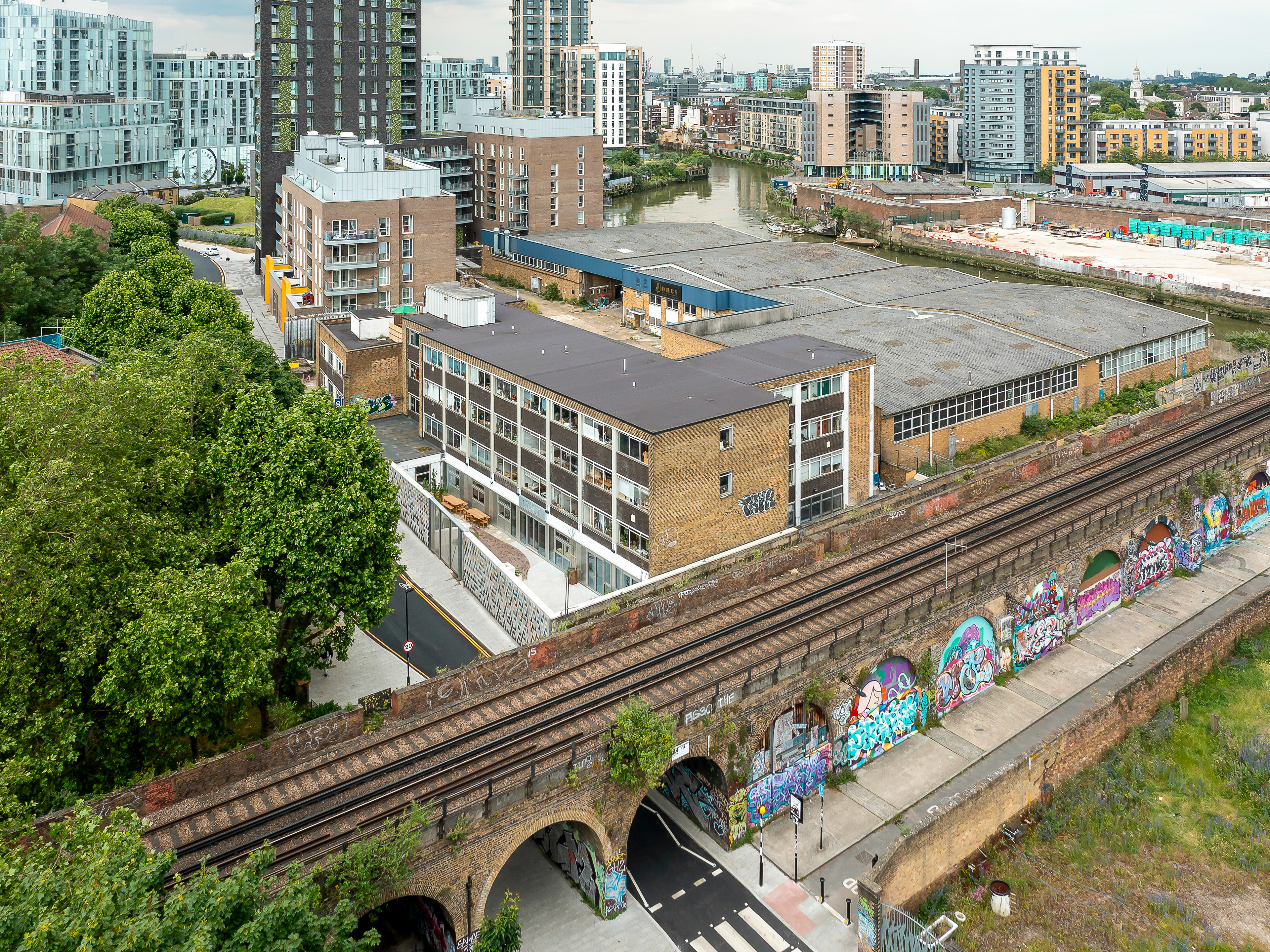
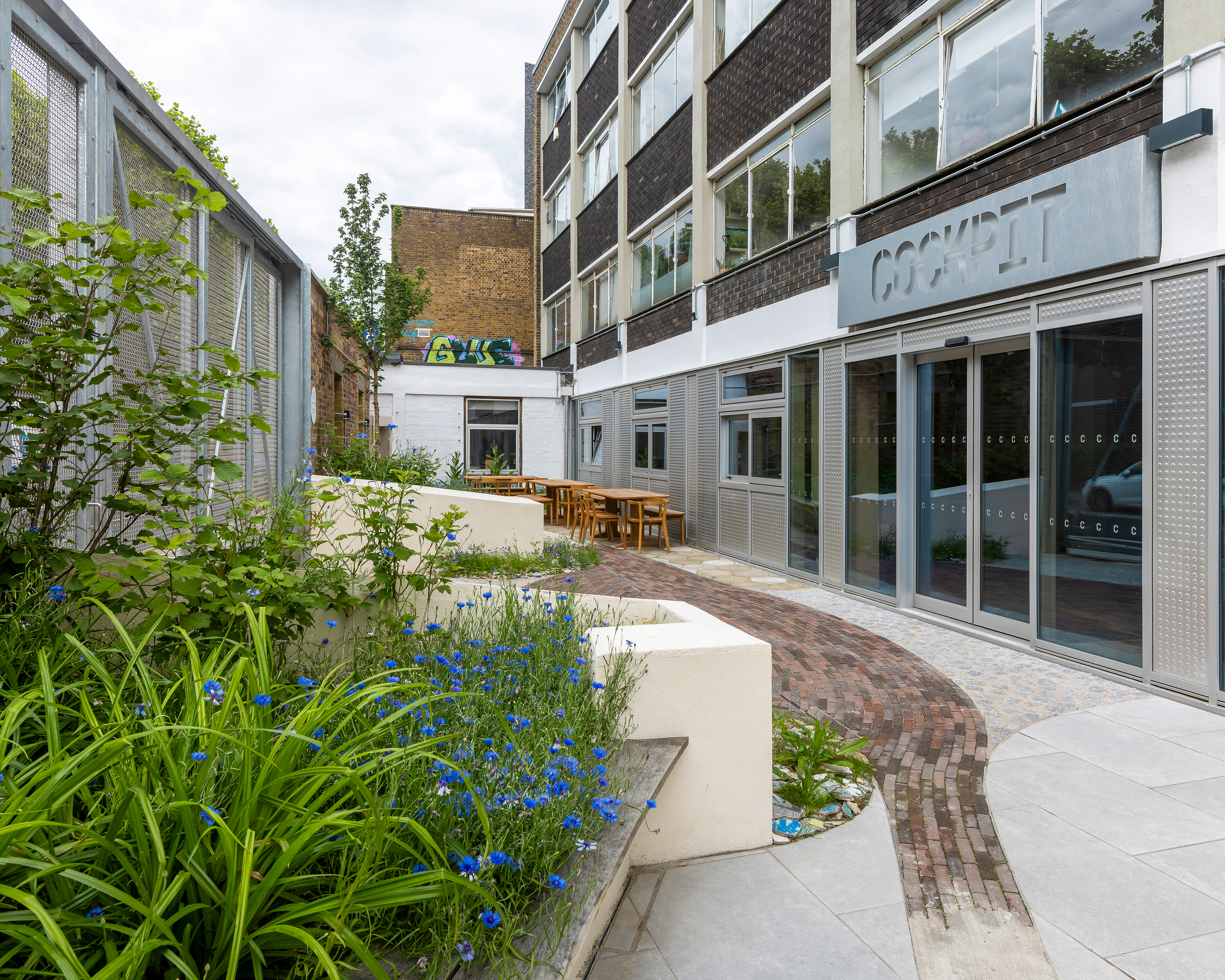


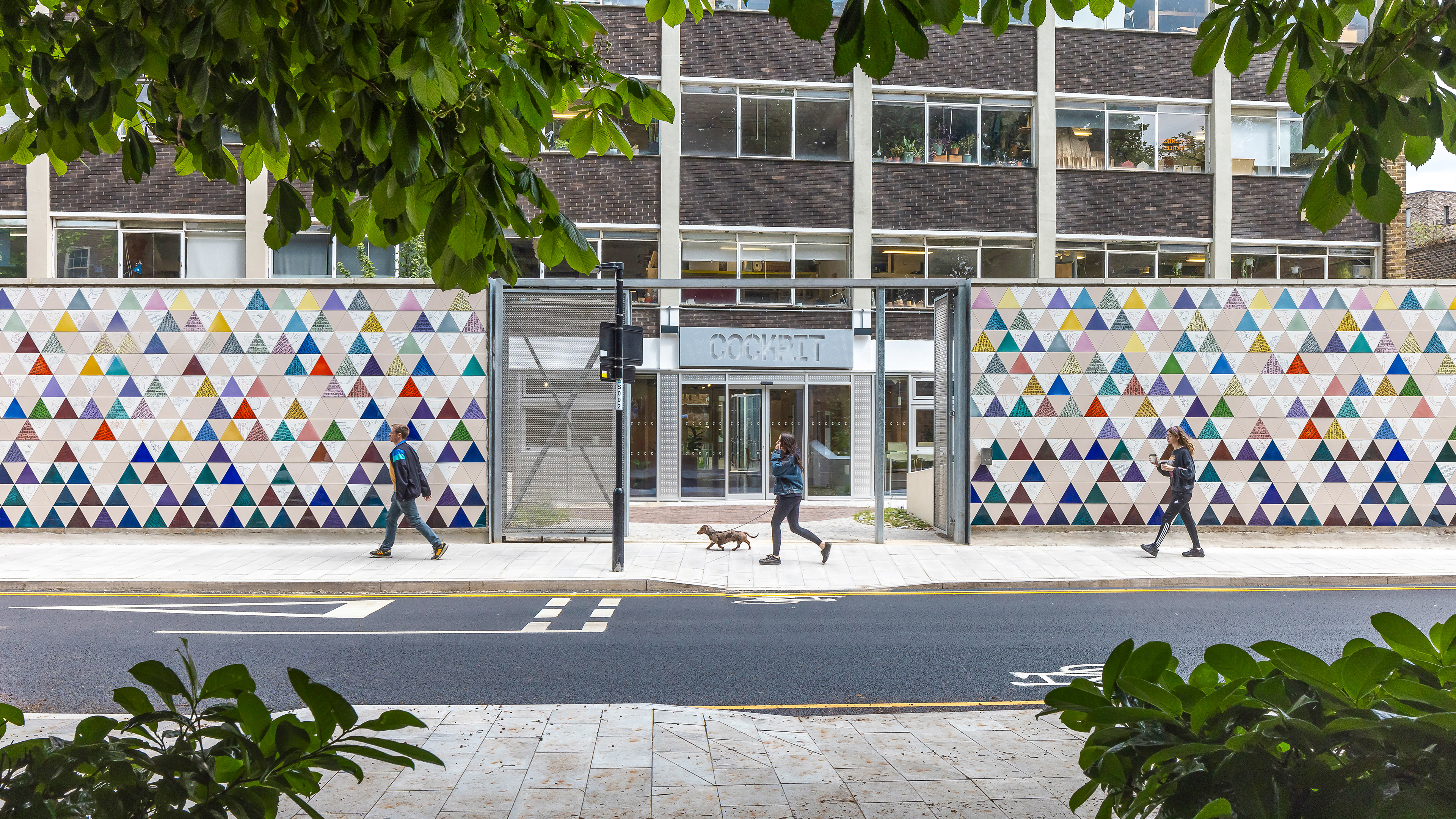
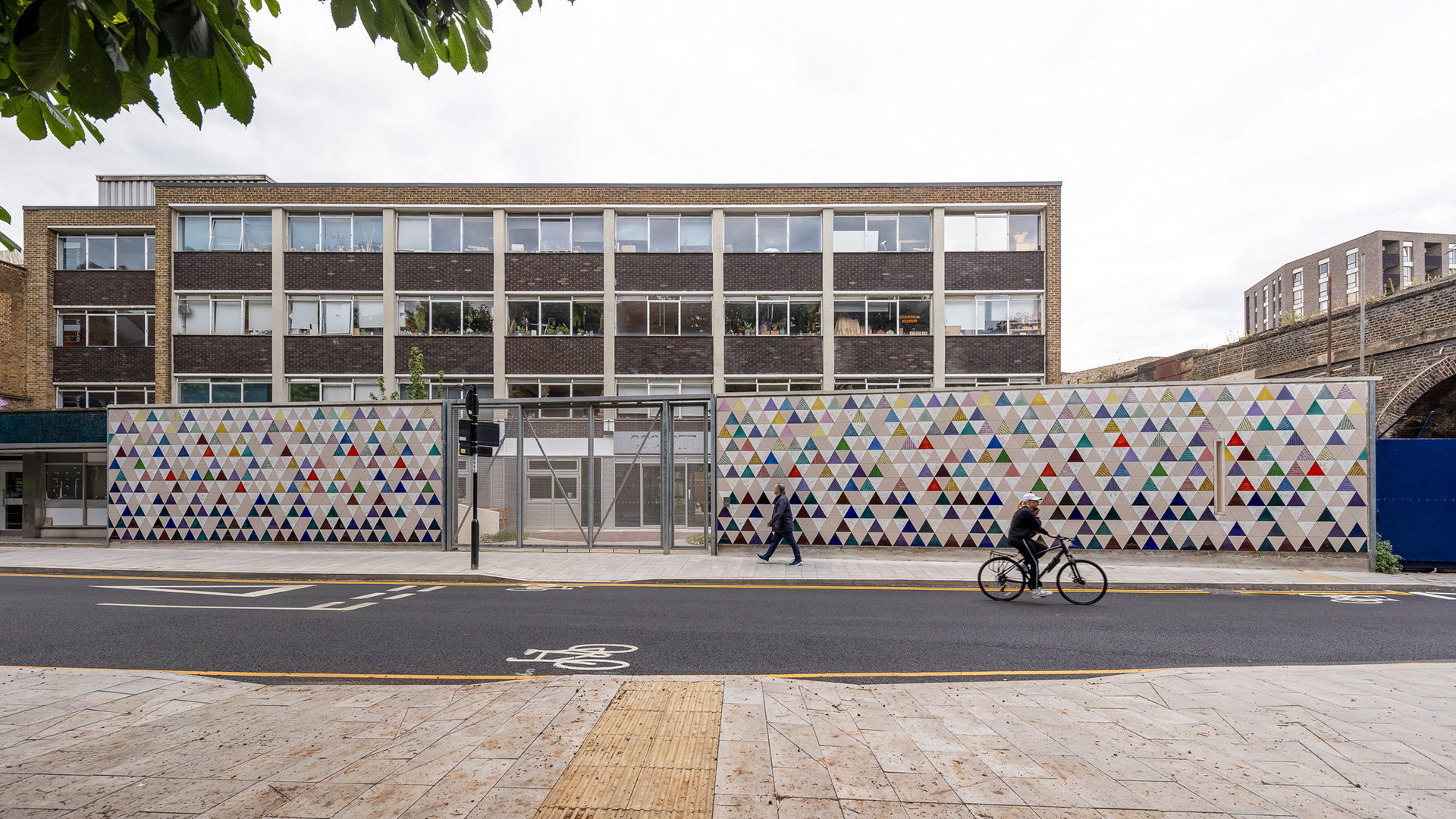
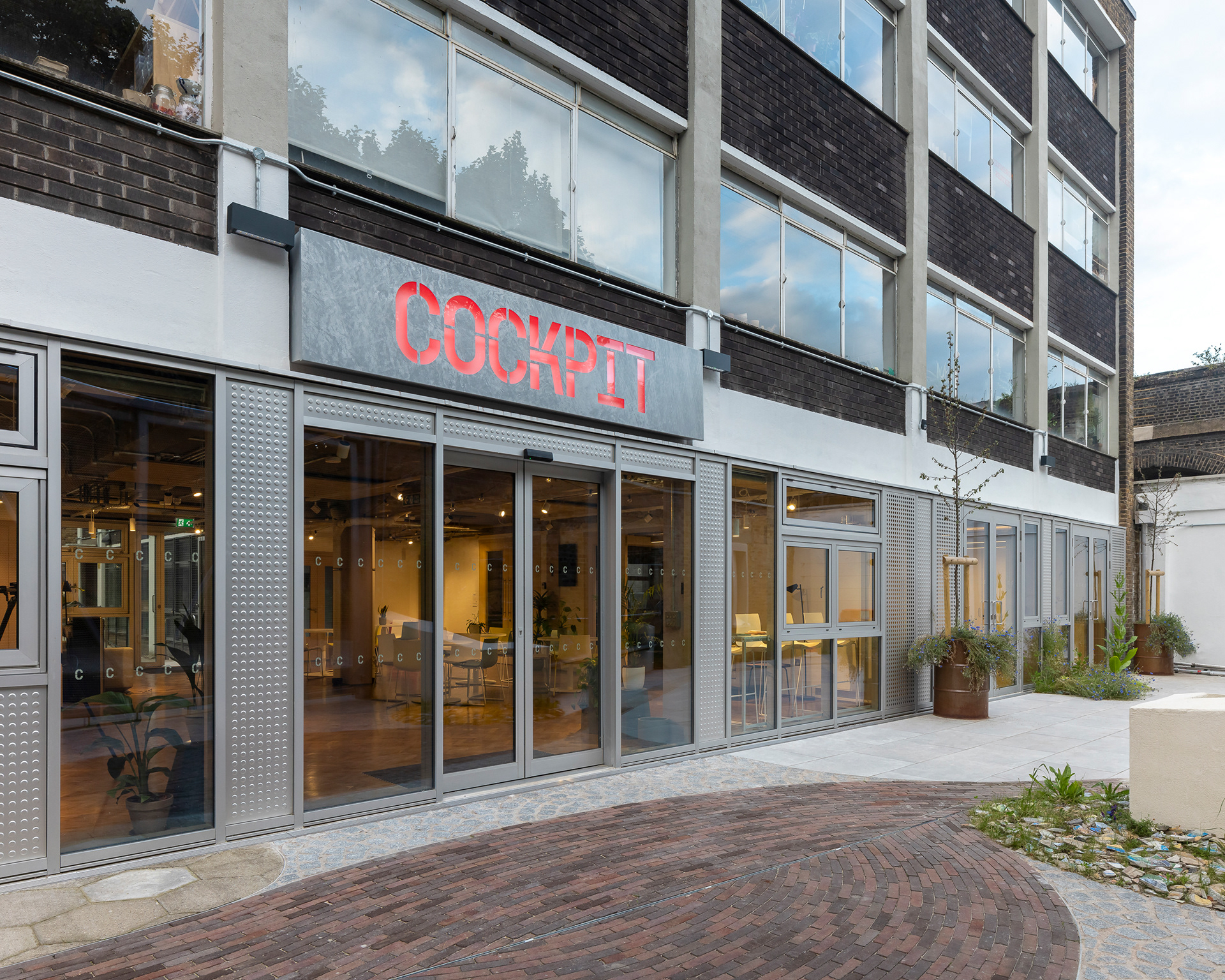
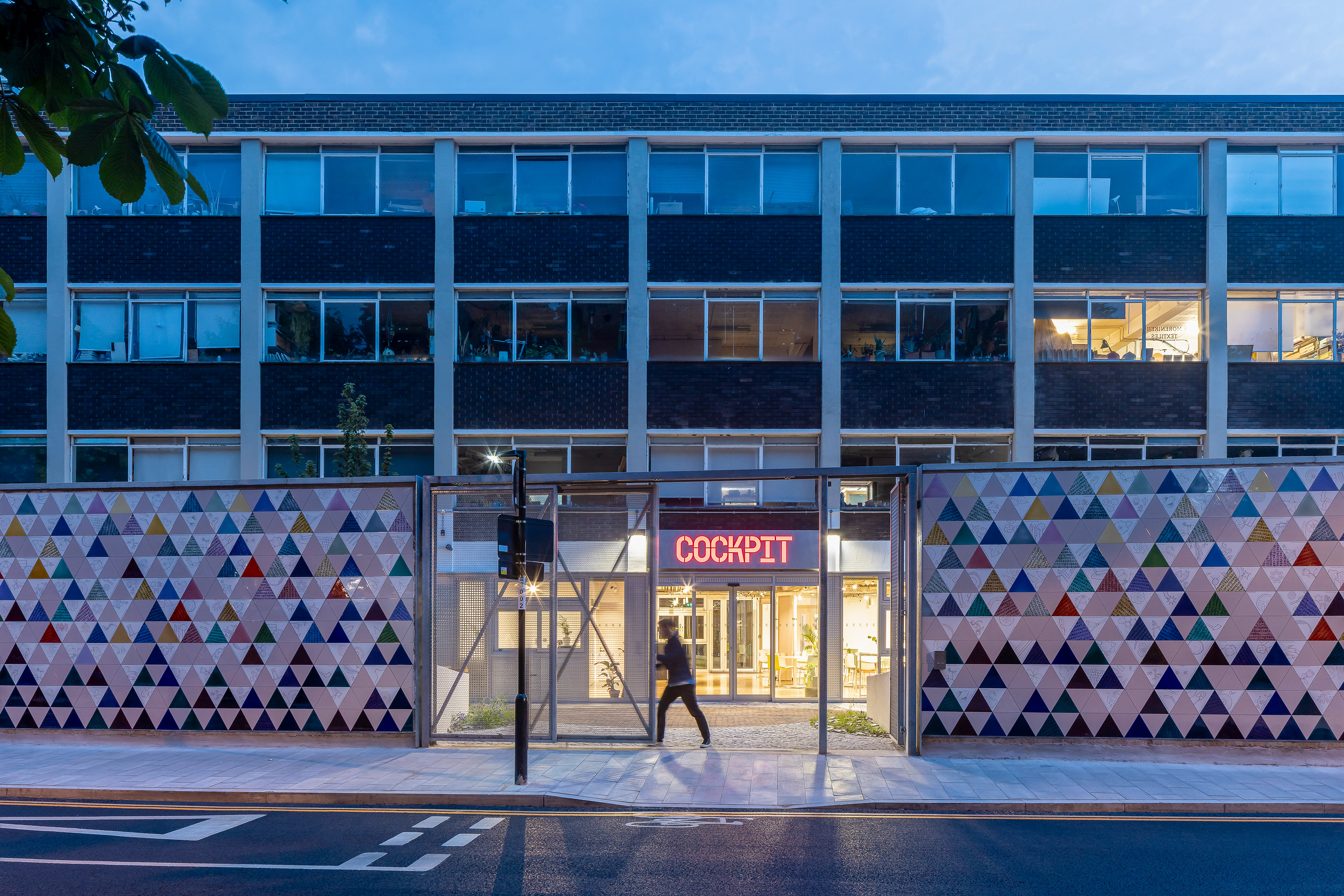


Cockpit Deptford Redevelopment
London
The redevelopment of Cockpit Deptford transforms a 1960s former council office building into a thriving hub for artisans and craft businesses in London's Lewisham Creative Enterprise Zone. At the heart of this transformation are the impressive, galvanized steel gates, which serve as both a functional element and a powerful statement piece that connects the facility's industrial heritage with its creative future.
Gateway to Craft and Community
The monumental, galvanized steel gates, standing 3m tall and spanning 6m in width, fundamentally reimagine the building's relationship with its surroundings. These sliding gates break through the previously impenetrable 21m-long brick street frontage, creating a dramatic and welcoming entrance where once stood a small, restrictive access point. This architectural intervention transforms a formerly inaccessible yard into a vibrant craft garden, establishing a generous, direct connection from the street to the new foyer, café, and educational spaces.
The monumental, galvanized steel gates, standing 3m tall and spanning 6m in width, fundamentally reimagine the building's relationship with its surroundings. These sliding gates break through the previously impenetrable 21m-long brick street frontage, creating a dramatic and welcoming entrance where once stood a small, restrictive access point. This architectural intervention transforms a formerly inaccessible yard into a vibrant craft garden, establishing a generous, direct connection from the street to the new foyer, café, and educational spaces.
Industrial Heritage Embodied
The gates' natural galvanized finish and industrial detailing intentionally reflect Cockpit's identity as a working maker space while paying homage to Deptford Creek's rich industrial past and the site's former life as a light industrial goods yard. Developed in collaboration with leading metalworkers Cake Industries, the gates embody the robust, practical aesthetic that characterizes the entire redevelopment—celebrating craftsmanship through both form and function. Like many aspects of the project, the gates embody the spirit of ‘made at Cockpit’ – celebrating the construction and fabrication of elements which come together to support making and craft in the building. The choice of galvanizing as the finish for this high-profile element of the project was directly informed by a desire for key elements to convey the spirit of the building.
The gates' natural galvanized finish and industrial detailing intentionally reflect Cockpit's identity as a working maker space while paying homage to Deptford Creek's rich industrial past and the site's former life as a light industrial goods yard. Developed in collaboration with leading metalworkers Cake Industries, the gates embody the robust, practical aesthetic that characterizes the entire redevelopment—celebrating craftsmanship through both form and function. Like many aspects of the project, the gates embody the spirit of ‘made at Cockpit’ – celebrating the construction and fabrication of elements which come together to support making and craft in the building. The choice of galvanizing as the finish for this high-profile element of the project was directly informed by a desire for key elements to convey the spirit of the building.
Part of a Broader Vision
This gateway element is integral to a comprehensive redevelopment that creates 20 additional affordable studio spaces alongside the existing 60, while introducing new public-facing amenities including a dedicated woodworking annex. The sliding mechanism of the gates allows for flexible public access, supporting Cockpit's enhanced community engagement initiatives and strengthening its role as a cultural anchor within the area.
This gateway element is integral to a comprehensive redevelopment that creates 20 additional affordable studio spaces alongside the existing 60, while introducing new public-facing amenities including a dedicated woodworking annex. The sliding mechanism of the gates allows for flexible public access, supporting Cockpit's enhanced community engagement initiatives and strengthening its role as a cultural anchor within the area.
Through these thoughtfully designed gates, the project achieves a critical balance between preserving industrial character and creating an inviting, accessible creative hub—transforming not just a building, but the relationship between makers and the broader community they serve.
Photographs © Peter Landers
